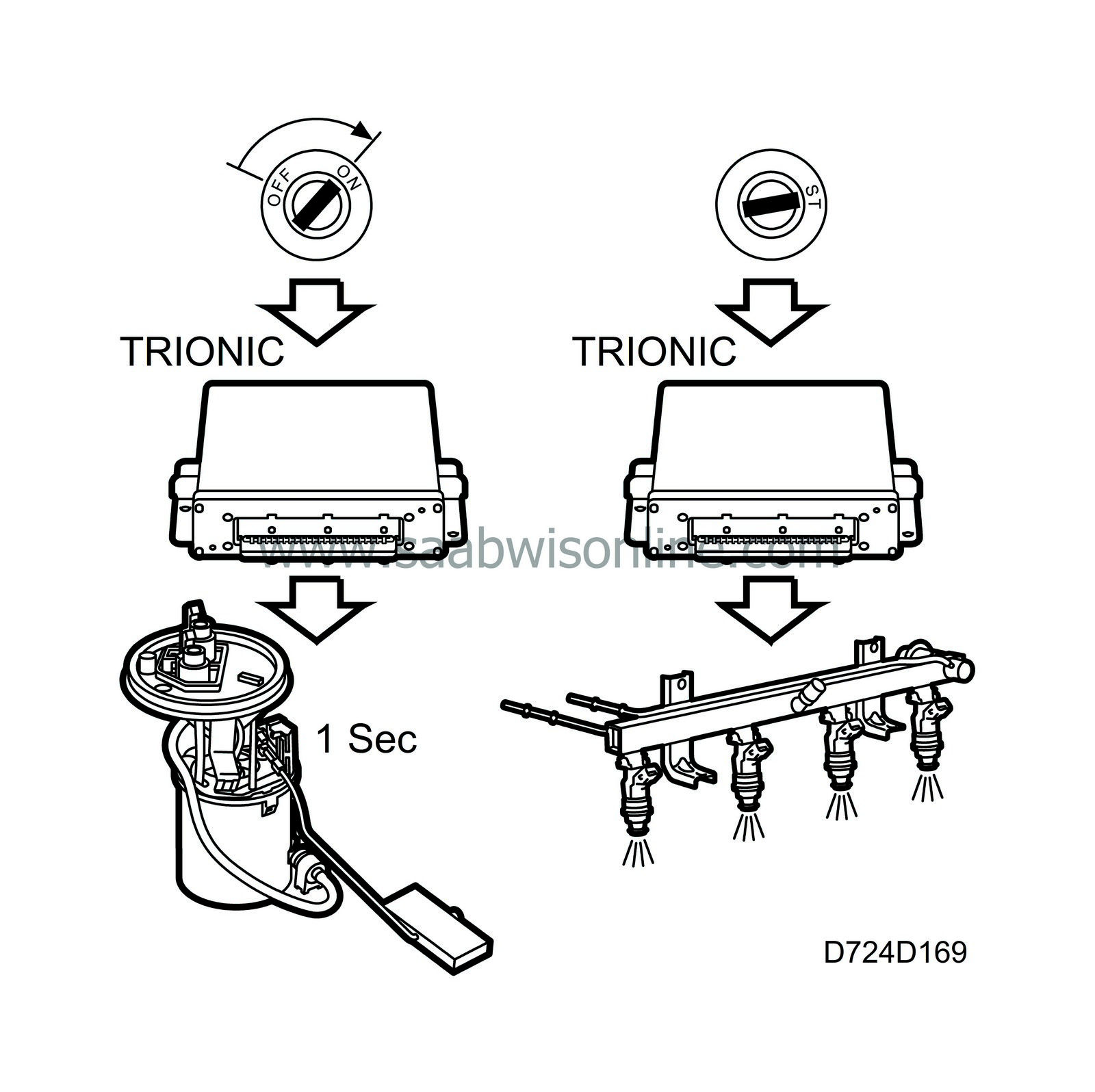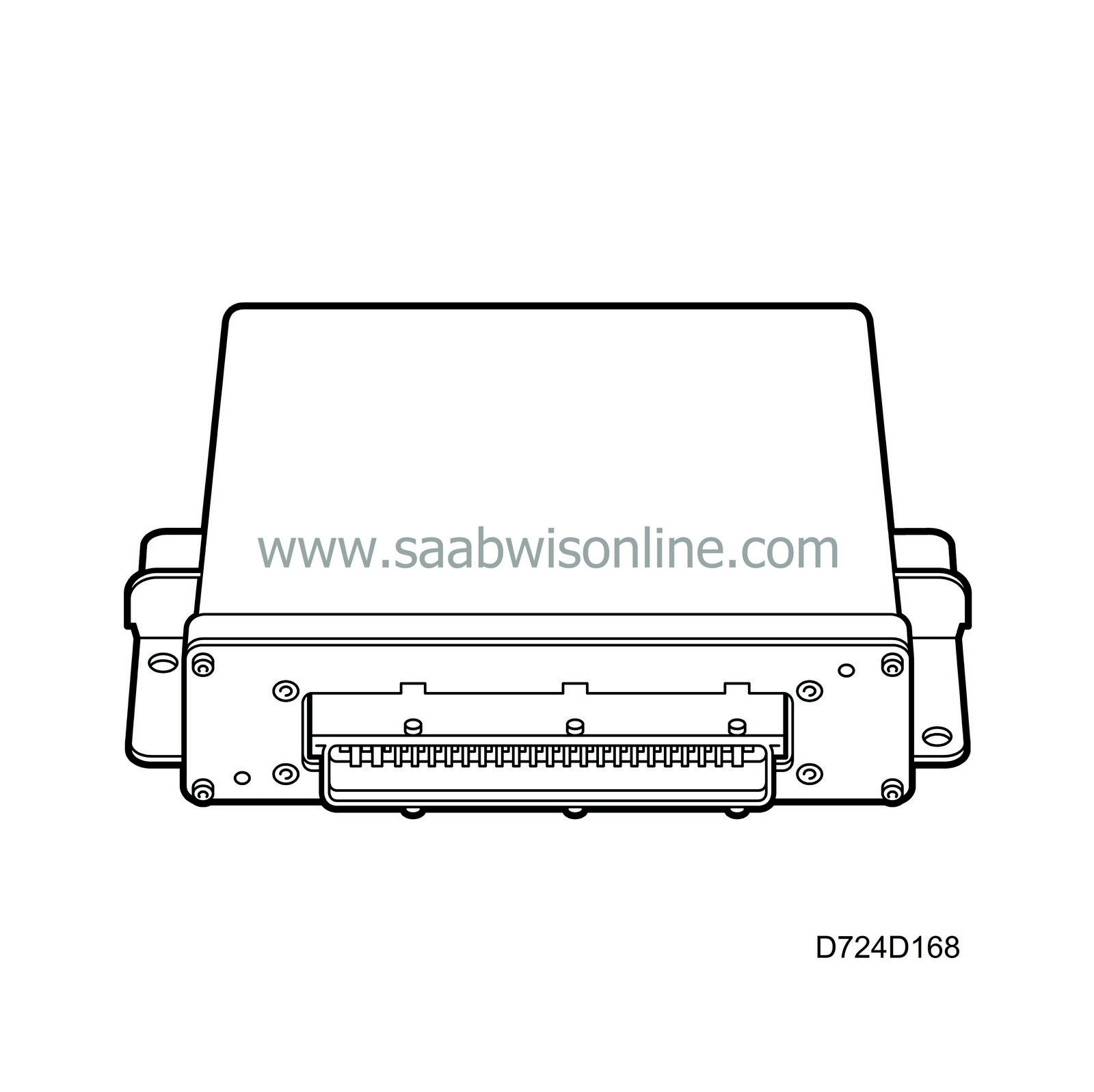PRE-RELEASE
Control module
| Control module |
| • |
engine torque
|
|
| • |
fuel injection
|
|
| • |
ignition.
|
|
The Trionic T7 control module has a 70-pin connector and is located on the right-hand side of the cabin behind the side trim under the A-pillar.
It has two processors. A number of sensors supply information to the control module, which processes it with the help of matrices stored in the control module after optimization of engine functions. Examples of these important matrices are the ignition timing matrices, fuel matrices and air mass matrices.
The control module can be damaged by electrostatic discharges or short circuits on any of the control module outputs and must therefore be handled with great care during fault diagnosis with BOB, for example.
The control module is continuously supplied with +30 and will lose adapted values and stored diagnostic trouble codes if this current disappears.
The control module is adapted for a voltage of between 8-16V when being driven.
When the ignition is switched on, the control module will be activated and the CHECK ENGINE lamp will go on continuously as a function check. The fuel pump is activated for 1 second so that fuel pressure will build up, after which the control module will await pulses from the crankshaft position sensor.
Fuel injection is controlled principally by the mass air flow sensor.
Substitute functions are available for all the sensors except the crankshaft position sensor.
The control module contains an integrated absolute pressure sensor for atmospheric pressure.
The atmospheric pressure is used to:

| • |
Correct the charge air control valve's PWM ratio. A greater PWM ratio is required at low atmospheric pressures to attain the same air mass/combustion.
|
|
| • |
Correct the PWM ratio for purging. A greater PWM ratio is required at low atmospheric pressures to attain the same purge flow.
|
|
| • |
Protect the turbo from overrevving at low atmospheric pressure by limiting the max. permissible air mass per combustion.
|
|
| • |
Blocking OBD II diagnosis:
|
|
| - |
Block the OBD II diagnostics at pressures lower than 72 kPa
|
| - |
Reactivate OBD II diagnosis at atmospheric pressures higher than 78 kPa.
|
Once the ignition has been turned off, all the sensors supplied with 5V are activated for 15 minutes. After 15 minutes, only the memory is active. Adapted values are stored in the memory.
Adaptation is important to performance, drivability, fuel consumption and emissions. The control module must therefore not be disconnected or in any other way be de-energized unnecessarily.
| Diagnostics |
| • |
If the control module program memory ROM or working memory RAM is defective, diagnostic trouble code P0605 will be generated.
|
|
| • |
If there is an internal function at fault that affects throttle control, diagnostic trouble codes P1601-P1611, P1613-P1614 or P1621.
|
|
| • |
If the atmosphere pressure sensor is defective, diagnostic trouble codes P1631-P1633 will be generated. The starting value for charge air pressure will be used as a substitute value and purging will be blocked.
|
|



